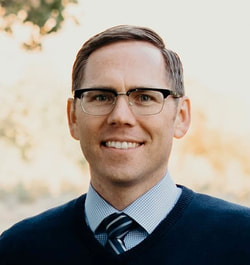 This week I attended a meeting with my fellow Extension professionals in Utah. We talked in-depth about change in the design of our program delivery and what we need to do to "stay relevant." None of my colleagues read my blog (or even know I have one since it's exclusively on the Internet) so I had the chance to share some of my ideas that could fix the "Extension is Broken," problem. My presentation was met with a full room of blank stares. I'm starting to realize I must speak another language. On a positive note I'm just glad we're having the discussion about change and the relevancy of the Cooperative Extension system. Here are three more ideas in this series about How to Fix Extension: 1. Adopt an Open Science mindset. Anne Mims Adrian left the following comment on my Extension is Broken blog post. I feel every Extension professional needs to support Open Science:
Until 1991, all Cooperative Extension materials were considered public domain. University of Minnesota was the first university to start copyrighted Extension materials. All land-grants have followed suite in one form or another. Some are using a Creative Commons license and allow faculty to make the decision to share openly with a license that allow others to change (remix) and repurpose the materials. The more open we can make our materials, the more likely that they will be shared and redeveloped into materials that have greater reach and impact. I know I talk a lot about Extension using social media. Can you tell I find the enormous lack of adoption frustrating? Nevertheless, Anne also states: Progress for Cooperative Extension is not just about using social media but it is also about a mindset of openness and collaboration across diverse groups. The lack of that mindset is what has me scared. It sure has me scared too. 2. Blog. Not every Extension professional needs their own blog, but part of a 10% social media appointment should include blogging. We all need to be contributing to blogs whether it's our own, or as a guest. Why? We must now engage on blogs and social media more than ever because Google's new Hummingbird algorithm favors conversation. We have to proactively search for blogs and articles that cover our areas of expertise and provide further insight, dispel myths and correct people where they are wrong...all while back-linking to Extension's research-based information. The Hummingbird update enhances Google's ability to understand the meaning between word combinations rather than just looking for keywords...which points to the de-prioritization of keywords. We can't just optimize for keywords anymore, we have to optimize our audiences. While this breakthrough makes my Journal of Extension article about SEO obsolete, the good news is that Google understands context, meaning and quality without needing all of the tagging and categorization. By the way, if you haven't set-up Google Authorship yet I suggest you do. 3. Hire Outside the Box. I think Cooperative Extension needs a breath of fresh air. We can't continue to hire the same people with the same backgrounds and expect different results. If we do, Extension will remain broken. What if we hired people with advanced degrees in business, communication, instructional and visual technologies, or computer science as county and regional faculty? Or how about MBAs in administration? I believe an outside, entrepreneurial perspective is what we desperately need. Let's stop hiring shy people who ignore and hide from clients. Instead, let's hire people who are excited about and capable of working with the public face-to-face and online. They can't be afraid to make a podcast or video newsletter. They should be exstatic about hosting a webinar or online course. I want to know about your ideas and what you are doing. Please tweet me or find me on Instagram and lets share. I want to fix Extension (#FixExt) together.
3 Comments
11/2/2013 11:28:29 am
Paul,
Reply
Thank you for your incredible insight and perspective Anne! I'm glad to have you in my personal learning network. Collaborating with and learning from Extension professionals from all over the country is one of the top 10 aspects of Extension work that I love the most. The 21st Century Extension Professional presentation is such a helpful resource, thanks for sharing.
Reply
11/16/2013 08:42:34 pm
Loved to read your blog. I would like to suggest you that traffic show most people read blogs <a href="http://www.auessaywritingservice.com/">http://www.auessaywritingservice.com</a> on Mondays. So it should encourage blogger to write new write ups over the weekend primarily
Reply
Leave a Reply. |
Paul Hill, Ph.D.I design, plan, and evaluate economic development programs for Utah State University. Archives
September 2022
Search this site:
|

 RSS Feed
RSS Feed
